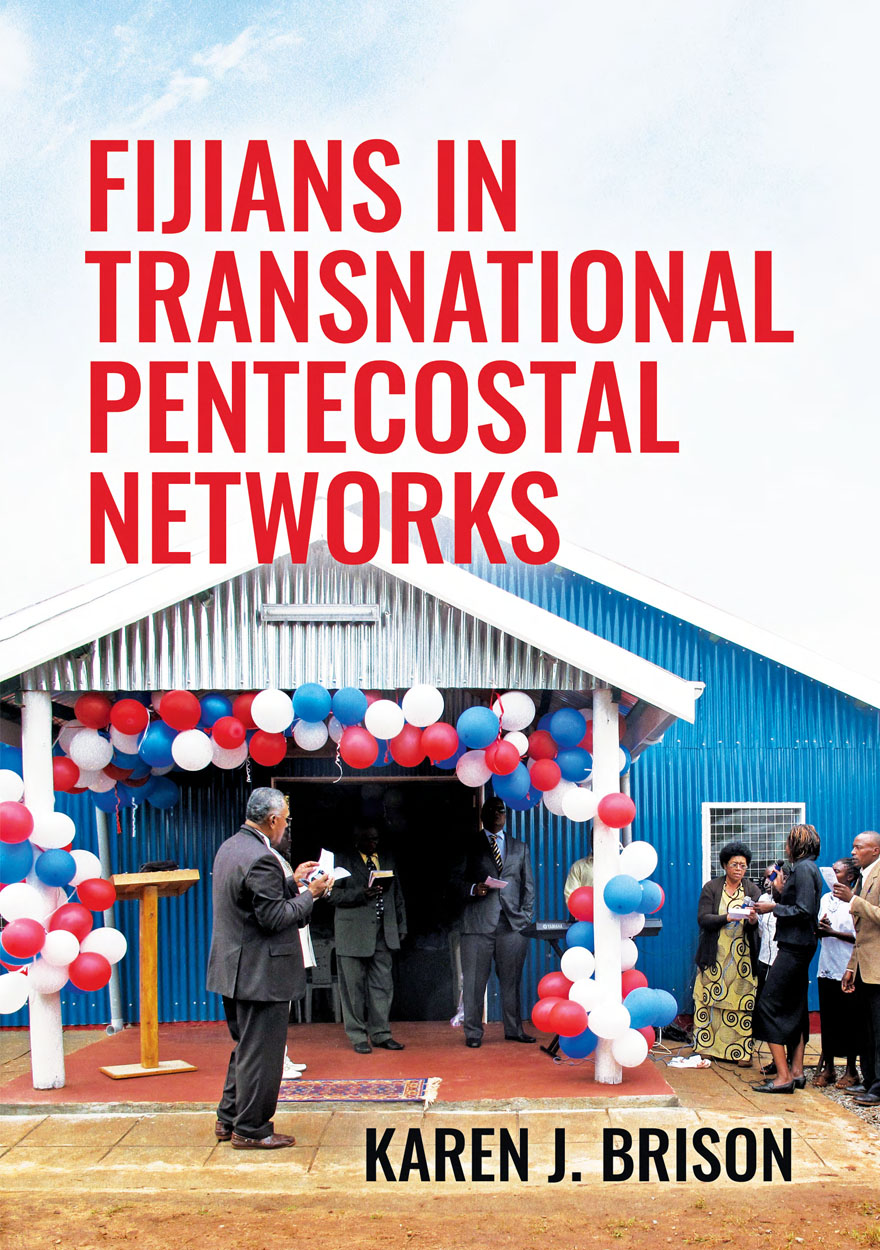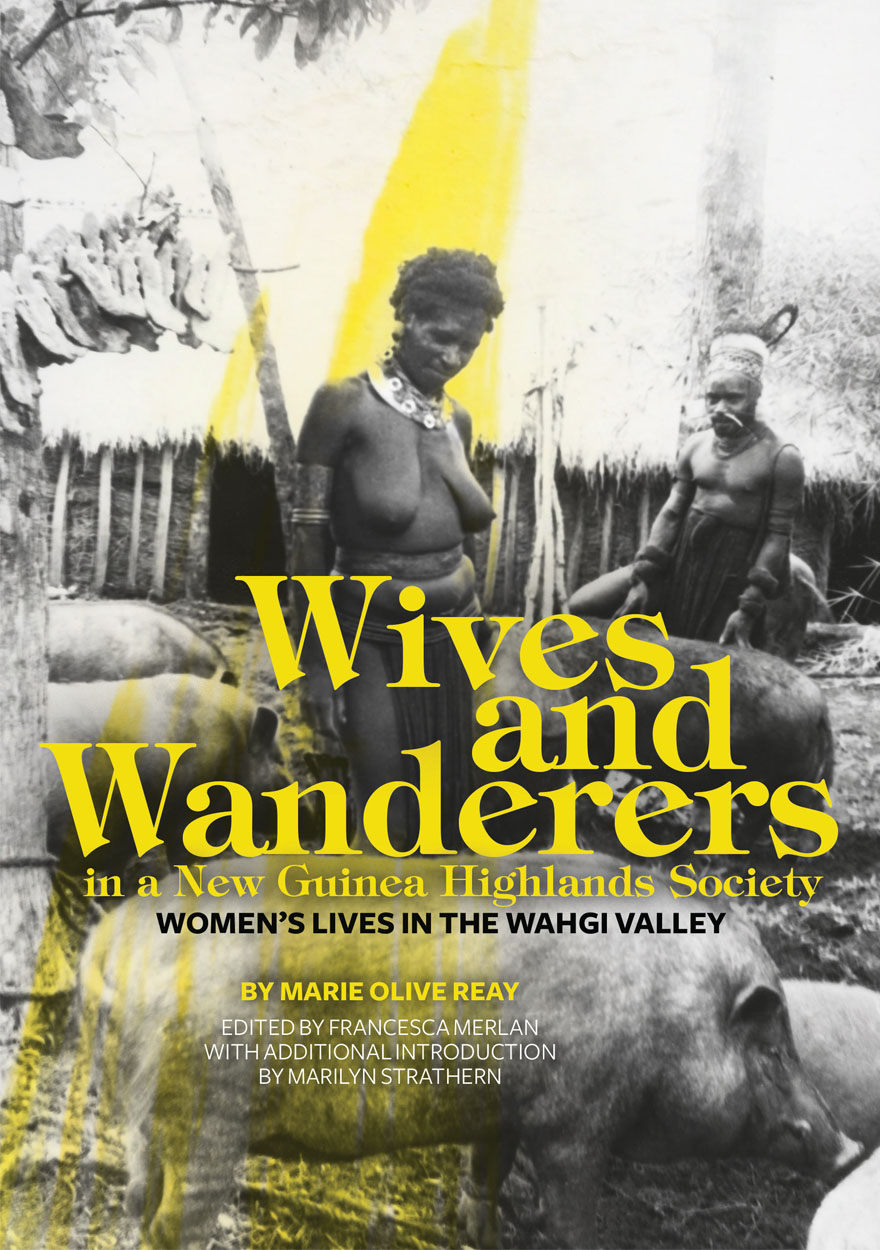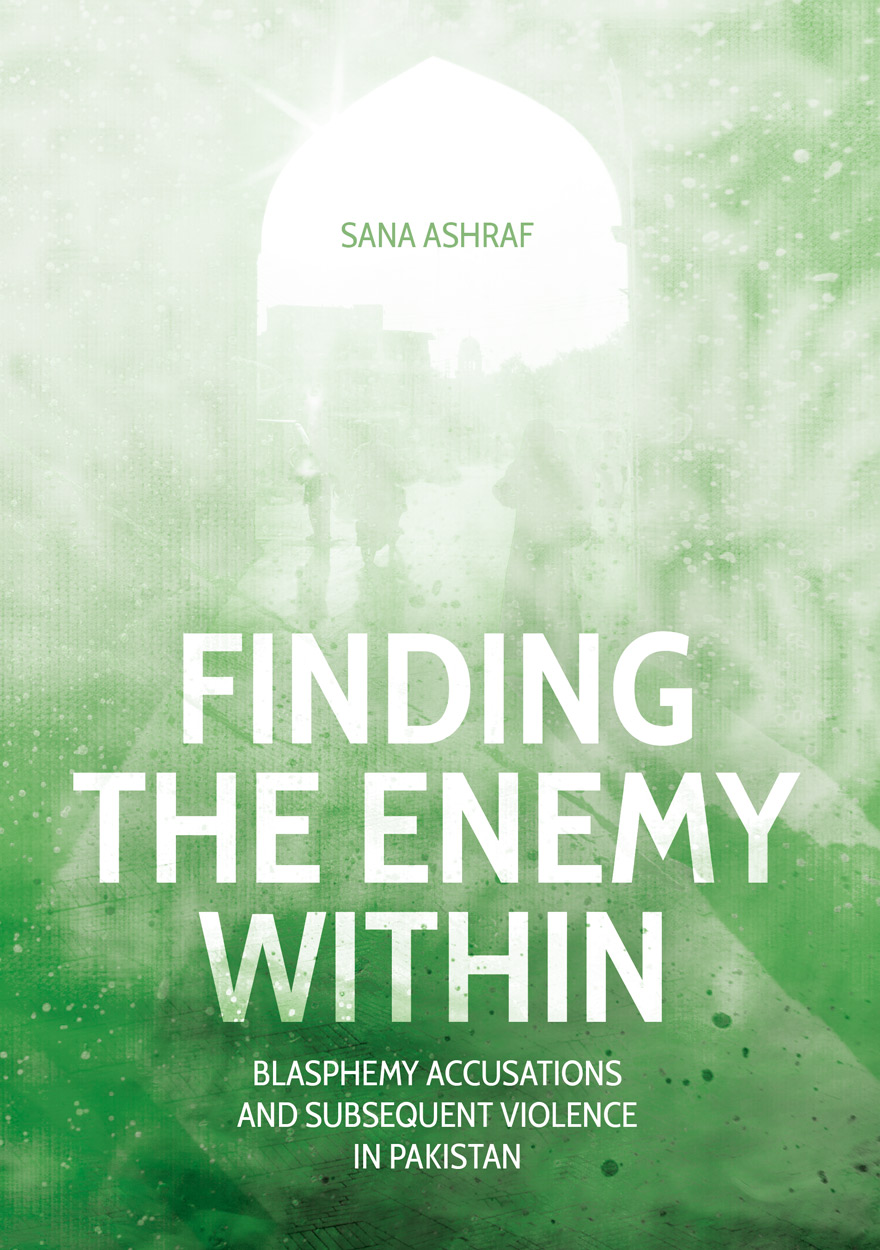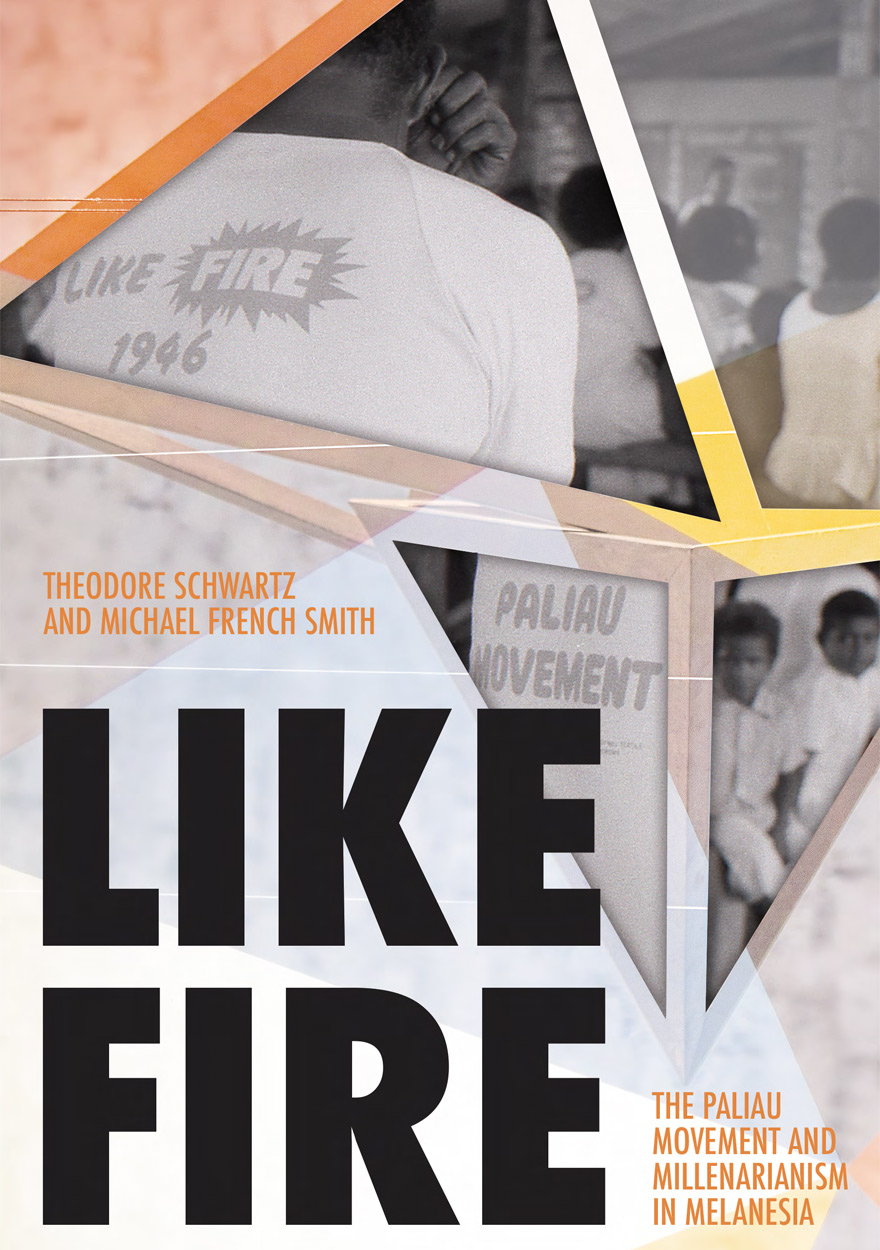Search titles
Displaying results 11 to 20 of 160.

Fijians in Transnational Pentecostal Networks »
Authored by: Karen J. Brison
Publication date: April 2023
In Fijians in Transnational Pentecostal Networks, Karen J. Brison examines the Harvest Ministry, an independent Fijian Pentecostal church that sends Fijian and Papua New Guinean missionaries to East Africa, Southeast Asia, Europe and elsewhere. After studying the ministry’s main church in Suva for several years, Brison visited its missionaries and their local partners in East Africa and Papua New Guinea. The result of those visits, this book provides an unusual insight into Pentecostal churches in the global south, arguing that they seldom produce novel visions of Christianity and world inequality. It also offers new perspectives, by situating Pacific island churches within a global community and by examining social class formation, which is increasingly important in the Pacific.
Pentecostalism has a consistent culture all over the world, but shared themes take on different meanings in the face of local concerns. In Fiji, Pentecostal churches are part of middle-class projects constructing leadership roles and highlighting transnational ties for a growing group of indigenous urban professionals. In Papua New Guinea, church leaders promote the idea that youths with blocked aspirations are tough and humble and therefore make invaluable missionaries. In East Africa, Pentecostal churches are part of a networking strategy that entrepreneurial individuals see as essential to survival. As these local groups each use Pentecostalism to advance their own agenda, they endorse Euro-American racial stereotypes and ideologies about social evolution and progress.

Wehali: The Female Land »
Traditions of a Timorese Ritual Centre
Authored by: Tom Therik
Publication date: March 2023
Wehali defines itself as the ritual centre of the island of Timor. As a ritual centre, Wehali continues to be the residence of a figure of traditional authority on whom, in the 18th century, the Dutch conferred the title of Kaiser (Keizer) and to whom the Portuguese gave the title of Emperor (Imperador). At one time, Wehali was the centre of a network of tributary states, which both the Dutch and Portuguese regarded as paramount to the political organisation of the island. This book is a study of Wehali in its contemporary setting as it continues to maintain its rituals and traditions.
Significantly, Wehali is a ‘Female’ centre and its ‘Great Lord’ is considered to be a ‘Female’ lord. Whereas other Timorese societies are organised along male lines, in Wehali, all land, all property, all houses belong to women. Men are exchanged as husbands in marriage. Wehali is thus considered to be the ‘husband-giver’ to the surrounding realms on the island that look to its inner power as their source of life.

Youth in Fiji and Solomon Islands »
Livelihoods, Leadership and Civic Engagement
Authored by: Aidan Craney
Publication date: April 2022
Fiji, Solomon Islands and the wider Pacific region are experiencing a ‘youth bulge’. As such, the livelihoods pathways of youth in these countries will be a key determinant of their social, political and economic futures. This book looks at the cultural expectations of Fijian and Solomon Islander youth, as well as the socio-political positioning of youth activists. It investigates how formal and informal structures – such as education, employment and civil society – affect the ability of youth to achieve their potential and actively engage in their societies. Through this investigation, a recurrent theme develops of the structural minimisation of youth in these countries: they are ‘to be seen but not heard’. But Pacific youth are more than citizens in waiting; they are already important members of their communities, with varying degrees of engagement in critical civil society. More than simply leaders of tomorrow, they are partners for today. Youth in Fiji and Solomon Islands documents and details some of the ways that young people in Fiji and Solomon Islands are forging their way as leaders not just of youth, but of their communities. Whilst the majority of youth are engaging in society in acceptable, social ascribed ways, and the majority of adults resist youth participation as a technique to maintain the social status quo, a small but influential cohort of both youth and adults are creating spaces for today’s young people to help to shape the developmental futures of the Great Ocean States of the Pacific.

Wives and Wanderers in a New Guinea Highlands Society »
Women’s lives in the Wahgi Valley
Authored by: Marie Olive Reay
Publication date: January 2022
Wives and Wanderers in a New Guinea Highlands Society brings to the reader anthropologist Marie Reay’s field research from the 1950s and 1960s on women’s lives in the Wahgi Valley, Central Highlands of Papua New Guinea. Dramatically written, each chapter adds to the main story that Reay wanted to tell, contrasting young girls’ freedom to court and choose partners, with the constraints (and violence) they were to experience as married women.
This volume provides readable ethnographic material for undergraduate courses, in whole or in part. It will be of interest to students and scholars of gender relations, anthropology and feminism, Melanesia and the Pacific. The material in this book, which Reay had written by 1965 but never published, remains startlingly contemporary and relevant.
Marie Olive Reay was a social anthropologist who did research in Australian Indigenous communities and in the Wahgi Valley in the Central Highlands of Papua New Guinea. Employed at The Australian National University from 1959 to 1988 when she retired, Reay passed away in 2004. In 2011 this manuscript was found in her personal papers, reconstructed and edited by Francesca Merlan, augmented here by an additional introduction by eminent anthropologist of the Highlands, and of gender, Marilyn Strathern.
Had this manuscript appeared when Reay apparently completed it in its present form – around 1965 – it would have been the first published ethnography of women’s lives in the Central Highlands of Papua New Guinea. Its retrieval from Reay’s papers, and availability now, adds a new dimension to works on gender relations in Melanesian societies, and to the history of Australian and Pacific anthropology.

Wampar–English Dictionary »
With an English–Wampar finder list
Authored by: Hans Fischer, Bettina Beer
Publication date: December 2021
This ethnographic dictionary is the result of Hans Fischer’s long-term fieldwork among the Wampar, who occupy the middle Markham Valley in Morobe Province, Papua New Guinea (PNG). Their language, Dzob Wampar, belongs to the Markham family of the Austronesian languages. Today most Wampar speak not only Wampar but also PNG’s lingua franca, Tok Pisin. Six decades of Wampar research has documented the extent and speed of change in the region. Today, mining, migration and the commodification of land are accelerating the pace of change in Wampar communities, resulting in great individual differences in knowledge of the vernacular. This dictionary covers largely forgotten Wampar expressions as well as loanwords from German and Jabêm that have become part of everyday language. Most entries contain example sentences from original Wampar texts. The dictionary is complemented by an overview of ethnographic research among Wampar, a sketch of Wampar grammar, a bibliography and an English-to-Wampar finder list.

Finding the Enemy Within »
Blasphemy Accusations and Subsequent Violence in Pakistan
Authored by: Sana Ashraf
Publication date: September 2021
In the past decade, Pakistan has witnessed incidents such as the public lynching of a student on a university campus, a Christian couple being torched alive, attacks on entire neighbourhoods by angry mobs and the assassination of a provincial governor by his own security guard over allegations of blasphemy. Finding the Enemy Within unpacks the meanings and motivations behind accusations of blasphemy and subsequent violence in Pakistan.
This is the first ethnographic study of its kind analysing the perspectives of a range of different actors including accusers, religious scholars and lawyers involved in blasphemy-related incidents in Pakistan. Bringing together anthropological perspectives on religion, violence and law, this book reworks prevalent analytical dichotomies of reason/emotion, culture/religion, traditional/Western, state/nonstate and legal/extralegal to extend our understanding of the upsurge of blasphemy-related violence in Pakistan.
Through the case study of blasphemy accusations in Pakistan, this book addresses broader questions of difference, individual and collective identities, social and symbolic boundaries, and conflict and violence in modern nation-states.

Island Encounters »
Timor-Leste from the outside in
Authored by: Lisa Palmer
Publication date: July 2021
Island Encounters is a narrative of Timor shaped by a journey from the outside in. Incorporating the author’s experiences from more than two decades of involvement with Timor-Leste and, more particularly, the months she spent travelling with her family from west to east in 2018, Palmer traces paths redolent in longing and learning, belonging and bewilderment, courage and conviction to tell of an island divided by colonialism and conflict.
The book’s themes shuttle back and forth across the island, weaving together the past, present and future in deeply felt histories and personal stories that create the shared fabric of Timorese people’s lives. Offering a counterpoint to modernising development narratives, Island Encounters tells of people’s quiet determination to maintain their relationships between their lands, waters, traditions and each other.
By foregrounding the ways in which ancestral pathways and cultural politics inform and course through everyday life on island Timor, Palmer reveals the richness of the rituals and customary practices that underpin Timorese lives and the lives of those entwined with them. And, all along the way, Island Encounters shows how Timor and its diverse peoples are working with, and re-working, confounding and being confounded by, the ever-desirous heart of development.
‘A poignant, at times heart-wrenching, honest account of life in Timor-Leste.’
— José Ramos-Horta
‘Island Encounters is a shimmery blend of anthropology, memoir and reportage. Palmer journeys her way across the island of Timor and uncovers human stories of pasts not yet passed and of an uncertain present. Island Encounters will be the definitive contemporary explainer of why things work the way they do on both sides of the border, in West Timor and Timor-Leste. Not only is Palmer a deeply knowledgeable scholar, she is an absolute dream of a writer.’
— Gordon Peake, author of Beloved Land: Stories, Struggles, and Secrets from Timor-Leste
‘Palmer is the best kind of insider-outsider to translate a culture from the inside so outsiders can understand. Living with Timorese family, Palmer has had access to levels of cultural knowledge not usually shared with outsiders and she takes readers on a journey into the Timorese psyche. Island Encounters is a great intellectual gift to everyone wanting to better understand the complex new nation of Timor-Leste.’
— Sara Niner, author of Xanana: Leader of the Struggle for Independent Timor-Leste

Indigenous Australian Youth Futures »
Living the Social Determinants of Health
Publication date: July 2021
Adolescents are at a critical life stage where they will soon be able to contribute to the wellbeing of humankind, or do it great harm. Consequently, it is vital that the challenges and possibilities of adolescence be well understood and addressed. In Australia, such understanding is urgently needed with respect to Aboriginal adolescents. Not only must they adjust to their changing bodies and minds, but they must negotiate these changes within a context usually characterised by racism and poverty. They must also do this within intercultural environments that include the disparate and sometimes incompatible beliefs and practices of their multicultural populations. The chapters in this collection address these challenges to Aboriginal adolescents in the Northern Territory and the intercultural contexts in which they take place. Their discussions include the adolescents’ experiences with health and health care, education, and the criminal justice system. They also address their hopes, dreams, plans and politics, engagement with social media, food preferences and nutrition, engagement with language, family, and changing mores affecting sexual behaviour and marriage.
The book aims to provide readers with a greater understanding of the day-to-day lives of Aboriginal adolescents, and some of the adults who care for or neglect them. It seeks to provide readers with a better understanding of the circumstances, processes and factors that affect adolescent health, wellbeing and future prospects in their intercultural environments, and glimpse the multiplicity of these circumstances, processes and factors and the complexity of their interaction.

Like Fire »
The Paliau Movement and Millenarianism in Melanesia
Authored by: Theodore Schwartz, Michael French Smith
Publication date: July 2021
‘Like Fire consummates remarkable longitudinal ethnographic research on the Paliau Movement in Papua New Guinea, pursued from the 1950s into the 1990s by Theodore Schwartz, with Michael French Smith as his sometime assistant, and updated by Smith in 2015. The theoretical arguments are highly provocative and the book is well written and fascinating throughout. Like Fire poses important questions about the driving forces and contours of Pacific Island history and the place in it of cargo cults and other millenarian movements.’
—Aletta Biersack, Professor Emerita, University of Oregon
‘Like Fire synthesises old, but inaccessible, and new material on an important and long-lasting indigenous Melanesian movement, while making extensive use of the wider literature on cargo cults and millenarianism. I find the theorising in this book both very original and an important contribution to the debates on Melanesian religion, cargo cults, and millenarianism more generally. As the authors state, the topic of millenarianism has great relevance because of its ubiquity in the contemporary world.’
—Ton Otto, Professor of Anthropology, Aarhus University, Denmark, and James Cook University, Australia
Like Fire chronicles an indigenous movement for radical change in Papua New Guinea from 1946 to the present. The movement’s founder, Paliau Maloat, promoted a program for step-by-step social change in which many of his followers also found hope for a miraculous millenarian transformation. Drawing on data collected over several decades, Theodore Schwartz and Michael French Smith describe the movement’s history, Paliau’s transformation from secular reformer and politician to Melanesian Jesus, and the development of the current incarnation of the movement as Wind Nation, a fully millenarian endeavour. Their analysis casts doubt on common ways of understanding a characteristically Melanesian form of millenarianism, the cargo cult, and questions widely accepted ways of interpreting millenarianism in general. They show that to understand the human proclivity for millenarianism we must scrutinise more closely two near-universal human tendencies: difficulty accepting the role of chance or impersonal forces in shaping events (that is, the tendency to personify causation), and a tendency to imagine that one or one’s group is the focus of the malign or benign attention of purposeful entities, from the local to the cosmic. Schwartz and Smith discuss the prevalence of millenarianism and warn against romanticising it, because the millenarian mind can subvert rationality and nourish rage and fear even as it seeks transcendence.

Austronesian Paths and Journeys »
Edited by: James J. Fox
Publication date: May 2021
This is the eighth volume in the Comparative Austronesian series. The papers in this volume examine metaphors of path and journey among specific Austronesian societies located on islands from Taiwan to Timor and from Madagascar to Micronesia. These diverse local expressions define common cultural conceptions found throughout the Austronesian-speaking world.



